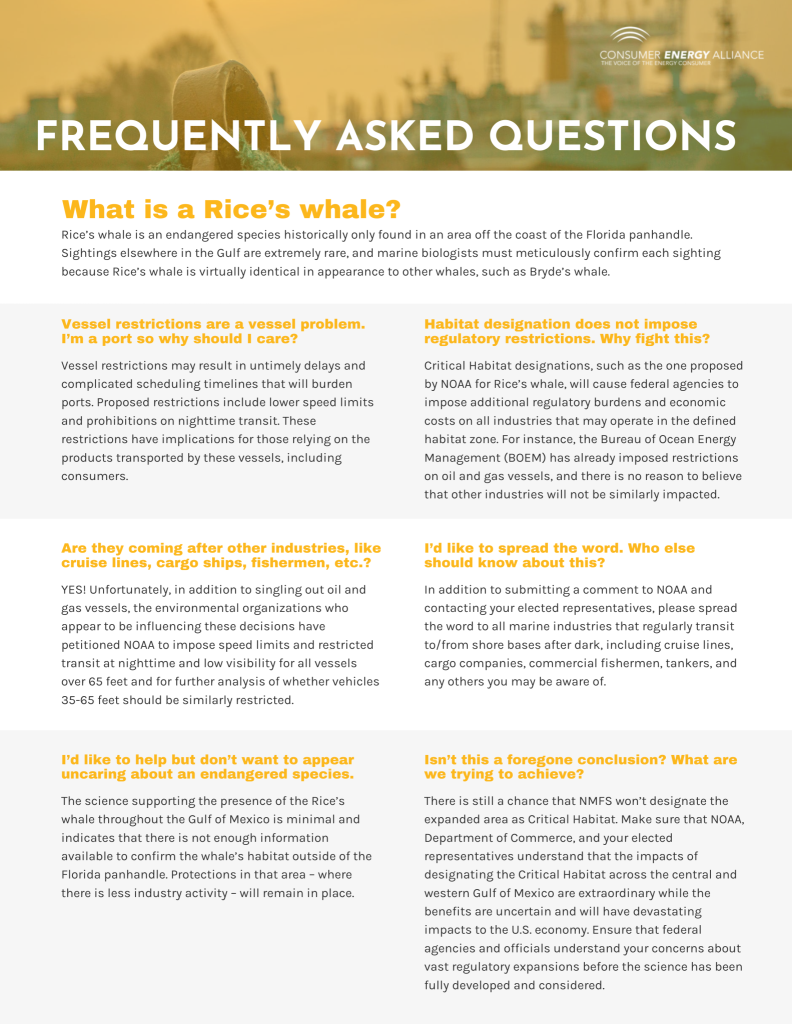Washington is Choosing Activists Over Gulf Coast Communities
Two years ago, the Marine Mammal Commission identified the Rice’s whale as an endangered species. These whales have only been consistently observed around the Florida panhandle in the northeastern Gulf of Mexico. Researchers have indicated there is incomplete data to determine if they live elsewhere.
Despite this lack of data, the National Marine Fisheries Services, recently issued a Proposed Rule that would expand their Habitat from Florida all the way across to Texas at the U.S./ Mexico border – nearly half of the Gulf of Mexico.
This newly proposed critical habitat encompasses approximately 6 million acres and includes key shipping lanes for Gulf Coast ports.
Protecting our marine life is vitally important, but this extended critical habitat is based on limited and questionable scientific data. This is why many scientists agree that more data is needed to really understand where these whales are and how they spend their time. Washington simply does not currently have the best scientific data to make these far-reaching determinations.
There’s also Significant Economic and National Security Impacts.
The impacts of expanding this Habitat will be felt across communities along the Gulf Coast and the U.S. economy, and consumers will likely bear the brunt of these costs.
Once established, a habitat designation often leads to new federal regulations – regulations that can lead to use restrictions, impacts on the ability to safely operate, and limitations on sea travel. Projects within a designated habitat can be subject to years of regulatory reviews, resulting in delays and added costs, causing significant economic impacts to communities along the Gulf Coast.
One federal agency is already creating speed limits for boats and banning transit at nighttime and in low visibility for vessels supporting oil and gas operations.
You Can Help! Support our Call to Action!
Make your voice heard. Tell Washington there simply is not enough scientific data to support this broad habitat designation across the entire Gulf of Mexico. Every commercial operation in the Gulf could be impacted, and the ripple effects would be felt across the entire United States.
Take TWO MINUTES to send a comment to NOAA and your local Congress member by submitting the letter to your right – OR write your own!
Supported By


